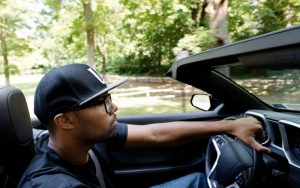(ThyBlackMan.com) It is sometimes said that modern America is built on a love affair with the automobile. Americans certainly love their cars and expect to drive a lot. But there is some evidence that too much driving is not very good for people. Could it be that, by driving less and finding more alternatives, we could live healthier and happier lives?
Can’t Drive, Won’t Drive?
There are two sorts of people who might look for different ways to get around: the people who decide to give up the daily commute, and the people who for one reason or another find themselves at or near a time when they cannot drive, or cannot legally drive. Both of these groups can start by looking at the advantages of not driving.
Most studies on the disadvantages of driving have concentrated on the effects of the daily commute. It seems that there are a number of effects that are alarming:
- Driving is the most stressful form of commuting, making drivers less able to focus at work or at leisure.
- Driving is more likely to make commuters overweight.
- Driving to work raises blood pressure, cholesterol levels, and other indicators of cardiovascular ill health.
- Driving appears to make commuters less sociable, and less trusting of others.
Although these effects do not necessarily translate into other driving activities, it is worth bearing in mind that driving is rarely the greatest part of anyone’s day.
What About the Law?
To these negatives can be added the legal drawbacks of driving. Drivers are always at risk of causing accidents, some of which can be serious. Drivers can suddenly find themselves facing criminal  prosecutions, even when they consider themselves to be the most law-abiding of citizens. People who have been told by their doctors not to drive because of their medication may forget the rules and get into the car. Also it is so easy to get behind the wheel when you know you shouldn’t, after a few drinks, perhaps. All sorts of people are likely to find themselves ‘driving while impaired,’ and needing the assistance of a DWI lawyer.
prosecutions, even when they consider themselves to be the most law-abiding of citizens. People who have been told by their doctors not to drive because of their medication may forget the rules and get into the car. Also it is so easy to get behind the wheel when you know you shouldn’t, after a few drinks, perhaps. All sorts of people are likely to find themselves ‘driving while impaired,’ and needing the assistance of a DWI lawyer.
What Are the Alternatives?
Whether you can’t drive, or choose not to drive, how else can you get around?
Walking. Whatever your age or physical condition, walking is likely to be good for you. Doctors advise most people to walk more, at least 30 minutes a day. It has a low impact on your joints, gently increases your heart rate to a sustainable level, and enables you to breathe more freely—even in a city atmosphere. It is also an activity which helps you to observe the world around you, and to converse with a friend or group of friends. For short journeys there are no better ways to get around.
Cycling. Riding a bicycle is a very healthy activity, especially out of town. Even in cities, where many people are put off by the vulnerability of cyclists to accidents, and distaste for breathing polluted air, it is reckoned that for commuters the health benefits far outweigh the risks.
Public transport. If you can avoid the busiest times of the day, using public transport can be relatively comfortable. Even for commuters, it has been shown to be a more enjoyable experience than driving on congested roads. It gives much needed space in the day for reading, listening, thinking, and holding conversations with others. Many communities offer reduced or free transport for elderly or disabled travelers.
Taxis. One thing that people easily forget is that, if they give up a car completely, they will find themselves with a great deal more money to spend on other modes of transport. Cars are very expensive, both to buy and to run. The money saved can easily justify the greater use of taxis to get around town, or for shorter out of town trips.
Asking for rides. We all have a natural independence which inhibits us from asking for help. But (within reason) neighbors, friends, and family will be only too happy to help out. Showing our dependence on others is a vital skill in developing healthy relationships, and small gestures of gratitude go a long way as repayment.
Is There Life after Driving?
Stopping driving can, for some people, be a major change and an unwelcome indication of mortality. But for others it can be a step into a new way of experiencing life, and can open the doors to an improvement in health, a new awareness of the world, and stronger relationships.
Staff Writer; Calvin Thompson

















Leave a Reply